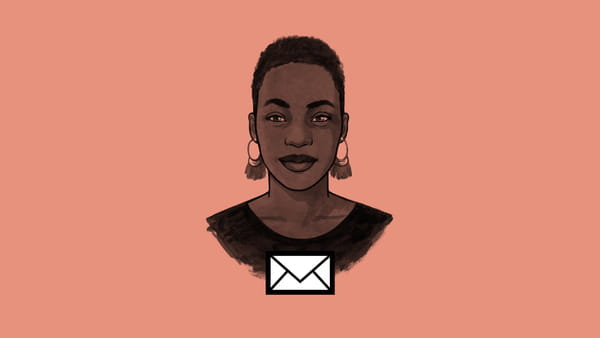Hi,
In case you didn’t know, "African parenting" is a distinct genre of the general parenting enterprise. Typical African parents combine dramatic reactions, intense religiosity and die-hard commitment to respectful and respectable behaviour in a way that is universally recognisable, and these characteristics are some of the few traits African kids are actually allowed to laugh at in their parents.
Take for instance this prank video, which went viral for the first time in 2014 and has yet to be unseated as the gold standard of "African parent" jokes. Almost seven million YouTube views later (a good number of which are mine), it still generates a buzz every time it resurfaces on social media because of how hilariously relatable it is.
The prankster’s father reacts to provocation in ways recognisable to anyone who knows an average African or Afro-descendant parent, including threatening to hit the boy with a broomstick. The YouTuber and his dad live in the UK, however, so whilst brandishing the broom menacingly, the dad says in Yoruba, "I will hit you with this stick and the police will come for us both!"
If Emmanuel and his dad had been in Nigeria, that now-famous broom might have been a belt, a loose bit of wire, a flexible cane, or anything really. The only requirement is the possibility of the item causing pain if wielded with sufficient force. (Another standard trope from the comedic genre in review is the "rubber-slipper-thrown-at-the-head", which comes from a tactic used when the parent, in this case typically a mum, is too far away to hit the child.) If Emmanuel lived in Lagos, the broom would have been used – probably several times – and the boy’s dad would’ve been perceived by all and sundry as having done the right thing in the circumstances.
On the Nigerian corner of Twitter, certain topics tend to come up again and again for discussion, such as who should pay for dates or why cooking is an inherently feminine pursuit. Normally, corporal punishment shows up in the cycle perhaps twice a year. Since we began social distancing in Lagos about six weeks ago though, the topic has come up three or four times already.
Videos have gone viral of parents hitting their children for failing exams, throwing tantrums, or even waking up late. Most often, the conversation is framed as "is this a good reason to hit a child?" or "how hard/how often should one hit a child?" Those who insist that hitting children is morally wrong and/or functionally useless for modifying behaviour are in the minority, and their voices are often drowned out by those who insist that they were beaten throughout their childhoods yet they turned out okay.
I find myself wondering, "Are you sure about that? After all, here you are, an adult, arguing vehemently with strangers on the internet about your right to physically harm children."
I myself was raised by a parent belonging to the "not too often and not too hard" camp of corporal punishment. I never really questioned the practice of beating children until I became a mother, at which point I realised that hitting my toddler "as discipline" was more strongly correlated to my personal stress levels than to her misbehaviour. Whenever we would have frustrating interactions, if I felt powerless or at a loss, or even if I was just having a bad day, I was much more likely to swat her, most often on her hand or shoulder.
The realisation that hitting my child was about stress relief for myself, rather than a desire to teach her how to behave better, stopped me in my tracks. It’s been years since the last time it crossed my mind to hit her.
Until lockdown.
Recently, after several weeks of interactions that made me want to scream into my fists, I told my daughter through gritted teeth that she had better go to her room or I’d smack her. And I meant it. I was at my wits’ end, on the brink of enraged tears, and ready to throw mutual respect and trust out of the window just so I could have an hour or two of not being yelled at by someone who I literally marinated behind my belly button. In typical African parent fashion – Yoruba mom, to be precise – I shrieked, "I didn’t kill my mother: you will not kill me!"
It took a lot of effort to calm myself down (read: pacing and puffing for several minutes while she complained loudly about whatever we were fighting over), after which I grabbed my ever-defiant child by the shoulders, marched her to her room, and gave her the finger wagging-est scolding of both our lives.
The very next day, I signed up to a parenting webinar called ‘Parenting in a pandemic’, offered by a Twitter mutual named Gbemisoke who has a degree in behavioural science, makes insightful videos about human behaviour, and also happens to be the most generous person I’ve met on that social media site. I said, "I could use some tips," but what I really meant was "Can you please tell me why my child has suddenly turned into a banshee who makes me want to throw hands?!"
As she walked me and other parents through the basics of behaviour, offering us guidance on how to safely nurture our offspring through the current (or any) crisis, I realised something that made me feel a fair amount of guilt. My daughter’s life, just like all of ours, has changed dramatically in the past few weeks. It’s overwhelming and she doesn’t know how to cope. In a word, she’s stressed. Yet, despite how stressful her days have been, she’s never once threatened to smack me.
(I can hear all the African parents gasping in collective horror at the very idea of a child hitting their mother.)
In the days since I started practising the tips I learned in Gbemisoke’s classes, things have gotten a lot less tense in my household. Instead of getting frustrated when my daughter’s behaviour tends toward inappropriateness, I embrace empathy. I remind myself that there’s a reason for the behaviour and, instead of reacting, try to focus on meeting whatever need is being badly expressed. (Or I just ignore the tantrums until she calms down on her own. I’m not a saint, y’all.)
My work heavily focuses on the importance of practising empathy and kindness in our relationships with one another, yet all it took for my high-minded ideals to fly out of the window was a few weeks of living through the end of the world. Still, I think we can agree that a global upheaval is hardly a good enough reason to forget how to be kind to anyone – let alone my own child.
It’s been hard watching my daughter, who is usually so thoughtful and kind, act out. But it’s also been really humbling and illuminating. I asked her the other day, "why have you been yelling at me so much?" "Because I’m upset," she replied. "And when I’m upset it’s hard not to yell." As she talked about how difficult it sometimes is to do what she knows is right, I smiled in recognition. That’s such an intrinsic part of being human, isn’t it?
Eight years ago when I signed up to be an African parent (well, when a pregnancy test made it clear that I had unwittingly signed myself up), I genuinely had no idea what I was doing. I just knew I wanted to do right by the child I would bring into the world, regardless of what "right" looked like. I didn’t realise that learning how to calm both of us down as we struggle with the effects of a pandemic would be part of that journey, but hey, that’s life.
It’s easy to forget, especially coming from a culture like mine, that children are people too. They may act like little demons sometimes, but they’re human. So this is a reminder to those of us who have the honour of raising them, African or not: empathy makes every human relationship easier, including the one known as parenting.
PS: If your children’s behaviour in the past few weeks has made you wonder where your capacity for empathy has gone, Gbemisoke is the truth. You don’t have to tell her I sent you.
Till next time,
OluTimehin
 Want to receive my newsletter in your inbox?
Follow my weekly newsletter to receive notes, thoughts, and questions on the topic of Othering and our shared humanity.
Want to receive my newsletter in your inbox?
Follow my weekly newsletter to receive notes, thoughts, and questions on the topic of Othering and our shared humanity. 
